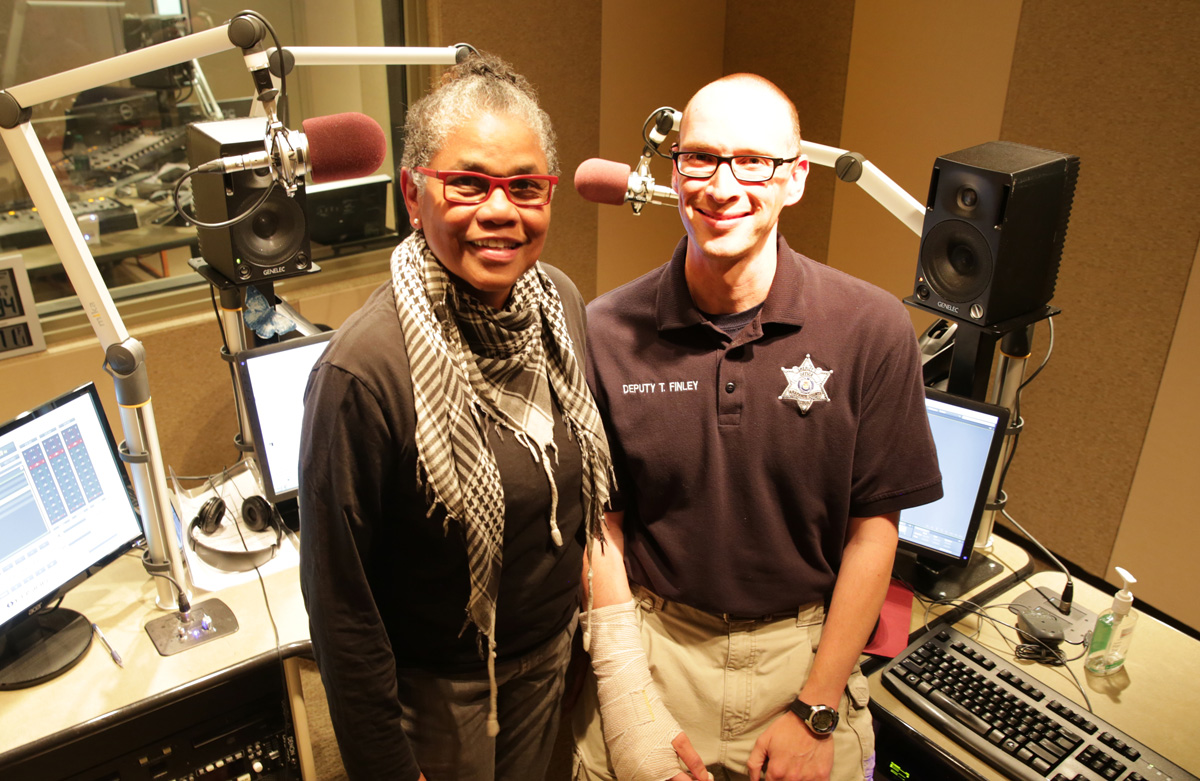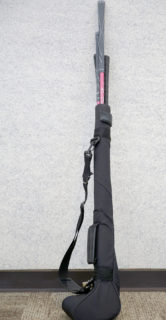
In September, Arapahoe County (Colorado) sheriff’s deputy Tom Finley responded to a call of a black man carrying a rifle in a 7-11 parking lot.
It wasn’t a man at all. It was a woman. It was Jo Ann Allen, who hosts All Things Considered at Colorado Public Radio.
And she wasn’t carrying a rifle, something that is legal to do in Colorado; she was carrying golf clubs.
Today, the two did something we rarely hear done in these sorts of confrontations. They talked about what happened. They did so on a CPR broadcast.
“I heard someone say, ‘Sir, drop the rifle,’ and I slowly turned, threw the golf clubs away from my body, and held out my arms, and said, ‘They’re golf clubs. They’re golf clubs.’” she told program host Ryan Warner. “The deputy slowly approached me and with his hand on his gun, prepared, as you might expect, slowly approached me, but when he saw it was golf clubs, he took his hand off his gun. I think his exact words were, ‘I apologize for challenging you. When we get a call like this, we have to respond.’
 “You know, as a skeptical reporter, I was really amazed at how he handled the situation. I was stunned. My heart was racing. I didn’t quite know what to do next. I totally understood why I was stopped, because if you see the clubs, it looks like a gun. I can totally see that,” she said.
“You know, as a skeptical reporter, I was really amazed at how he handled the situation. I was stunned. My heart was racing. I didn’t quite know what to do next. I totally understood why I was stopped, because if you see the clubs, it looks like a gun. I can totally see that,” she said.
Today, she wanted to know what Finley was feeling as he confronted her.
“You know, that’s one of the things we train to do is to be calm in crisis situations, because if you’re out of control yourself, you’re going to do more harm than good,” Finley said. “We do a lot of shoot/don’t-shoot type of training at the range, where they train the calm into you, basically.”
That works until it’s all over and there’s an “adrenalin dump,” Finley said.
“During the situation, you have adrenaline that actually helps you function better, but then after the situation, the adrenaline wears off and your heart races and you start getting sweaty. Even sometimes your fingers will feel a little shaky,” he said.
“It wasn’t until after the event was over and after I’d gotten to work here at CPR that I felt nerves and that I thought back on the actual scene several times in my mind’s eye,” Allen said. “And as the day wore on and by six o’clock that evening, I was really almost not quite a wreck, but I was closer to being a wreck than I had been during our actual encounter. And after the fact, you realize, oh, my goodness, this really could have gone badly.”
Finley was thinking the same thing.
What intrigued Allen is Finley’s apology for challenging her.
Finley had never said that to anyone before.
“It went from being a black man with a gun to being a black woman with golf clubs. And so, I was almost feeling bad about having shouted at you,” he told Allen, who says hearing those words was when she realized he was well trained.
Like Allen, Finley was left with the “what-ifs”.
“What if you hadn’t complied and, dropped the golf clubs? What if I thought it was the rifle? What if it had gone really poorly and I had shot you and then found out they were golf clubs? I mean, that was something I talked about with one of my really good friends and how terrible that would have been,” he said.
Is there a lesson here somewhere, the two were asked by the show host?
“Just try to be calm and if a police officer’s shouting at you to do something, maybe that’s not the best time to argue. You know, follow what the officer’s telling you first and then sort through it after,” Finley said. “Because also lights and sirens would have scared the person you’re going after, too, which could have made me— could have gotten me ‘amped’ up.”
Did Allen’s race enter the equation?
“Only to describe her,” Finley said. “That was the only way it played any, any role in my response was just who am I looking for?”
“I was wondering if this changed you in any way?” Allen asked.
“I don’t think so,” replied Finley.
Hear their conversation here.
(h/t: Hart Van Denburg)
